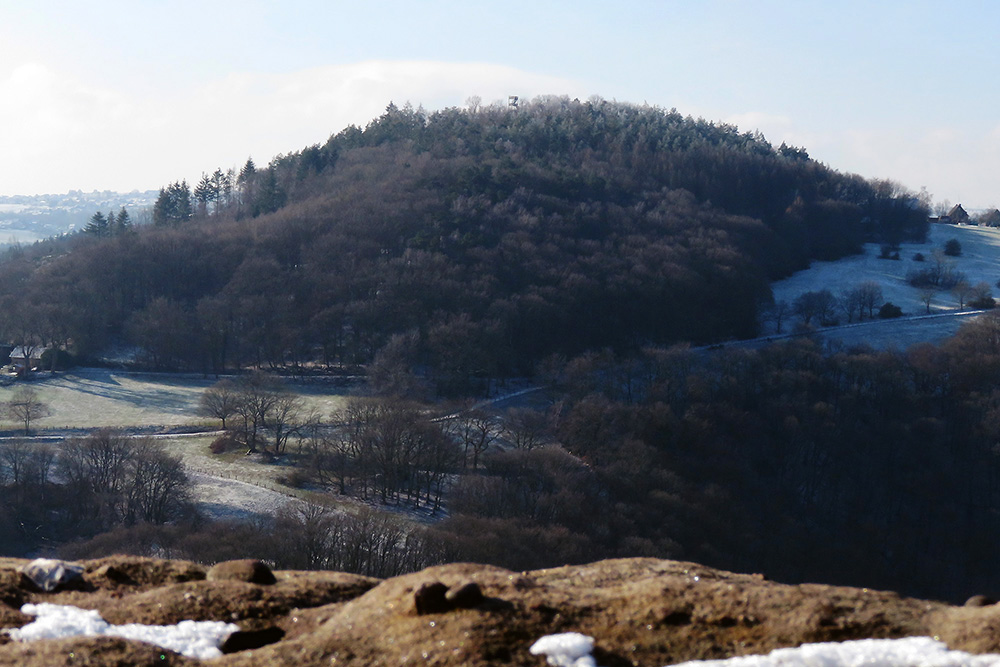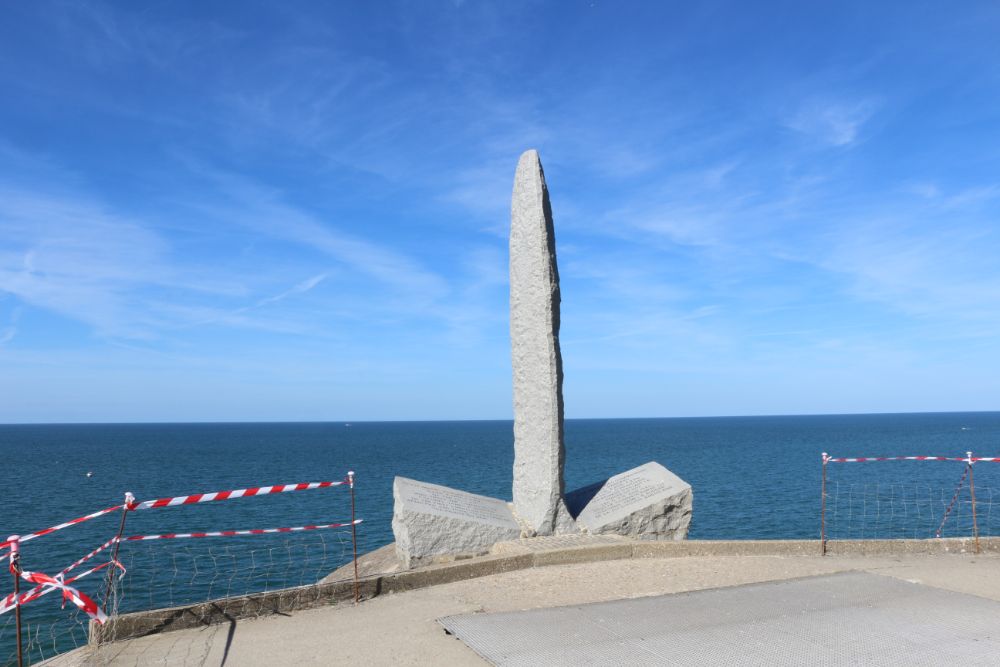Slater, Harold K. "The Duke"
- Date of birth:
- 1919 (Indiana, United States)
- Date of death:
- April 5th, 2011 (Albuquerque/New Mexico, United States)
- Nationality:
- American
Biography
Duke was Captain of "D" company, 2nd Ranger Battalion, sent in to Point du Hoc on 6-6-44. His landing craft was damaged/swamped by a destroyer on the way in. Several of his guys drowned. In the chaos, it took several hours to rescue Duke and comrades, desperately trying to remain afloat in the cold channel waters. After being picked up and taken back to the troop ship, he finally made it to Normandy 19 days later. He fought throughout Europe and served as part of Patton''s forces. Patton required all officers to wear their badge of rank visibly, even in combat, and always to wear wool shirts and ties when in headquarters area. Duke said that, up front, the German snipers targeted officers, and it was idiotic to ask officers to wear visible markings on the front lines, but Patton demanded it. Duke said, "My rank was affixed to my undershirt, very heavily buried, in spite of what Patton said to do". When he came in off the line, he didn't have wool shirts and ties, so he found some helpful MP's to help him get around. He didn't speak highly of Patton. Duke ended up in Czechoslovakia. He said that he was one of the few Rangers to go "all the way" from D-Day up to the Russian takeover in Czechoslovakia.
In Korea, he was an advisor to a Korean regiment when the "balloon went up". He fought a delaying action back down the peninsula, fighting against tanks with no heavy weapons. During the ''fighting withdrawal" or ''delay action", he was given a battalion of North Koreans to serve as part of the regiment he commanded (er..."advised"). He said these North Koreans fought like tigers, as they could not allow themselves to get captured because their entire families back in North Korea would be killed if they were identified as "traitors". "They were good fighters" he says. He and his people were picked up by the Navy and taken further down the coast, then re-landed. He said the Navy and Marine aircraft providing air cover were Corsairs...prop planes that were very effective in support. The Air Force jets came from Japan, and were only over Korea for about 20 minutes, and didn''t do much good.
A year and a half later, still fighting in Korea, he was captured by the Red Chinese and was held as a POW for 2 1/2 years. He was captured near the 32nd parallel in May of 1951 and force-marched north to Incon-nee (I'm guessing at the spelling), which they reached in November. He said it was a 6-month "death march". Those who couldn't keep up were killed. He said "You''d see one of the guys fall by the side of the road, unable to go on. Then you'd hear a shot, or see a guard wiping blood off his bayonet, and know that the guy had been killed". He said there were about 300 people in the camp at Inchon-nee, near the Yalu River, mostly Americans, but some English, Australian, Turkish, too, most of whom were pilots that had been shot down. When captured he weighed 206 pounds (the same weight he was when he went through jump school). When released 2 1/2 years later, he weighed 110 pounds.
When he first became a prisoner, they used to keep him in "fruit cellars". He described this as a hole that the Koreans dug to keep food in. The prison guards would throw a bamboo mat in the bottom, throw the prisoner in, cover the top with timber, and give them 2 cups of watery soup (no rice) a day. No movement, no heat, no water, no toilet.
I told Duke I had never read about this. He said he doesn''t believe anyone has ever written a book about it. There were only about 300 people in the prison camps (1 and 2), of all nationalities, and that he doubted if any of them had written a book. Only 4 are left alive who were in Camp 2 with him. He said that more than 1/2 of those who were repatriated in 1953 died with a couple of years due to the aftereffects of their imprisonment.
Duke said that when the peace talks were going well, things improved, but when they were going poorly, it was hell on earth. He said that nighttime was when the North Koreans or Chinese would take them in for "interrogation". He'd hear them taking someone from the next cell. Then he''d hear screams. Sometimes the guy never came back. He said that he, too, had his turn being called in the middle of the night. He said he couldn't talk about it, but that "some people aren't human". He said his wife used to wake him up during the night because he was screaming and covered with sweat. He said she died in 1994, and he still wakes up covered in sweat in the middle of the night, but he doesn't know if he was screaming, as she's not there to tell him.
Rangers are supposed to have courage and fortitude. Duke has a full measure of both.
Do you have more information about this person? Inform us!
- Period:
- Second World War (1939-1945)
- Period:
- Second World War (1939-1945)
- Unit:
- Company D, 2nd Ranger Battalion, Provisional Ranger Group, V Corps, First Army, U.S. Army
- Awarded for:
- Operation Neptune
- Period:
- Second World War (1939-1945)
Sources
- - Taking Hill 400: Army Rangers vs Fallschirmjägers
- Albuquerque Journal Obituaries
- James MacDougald







